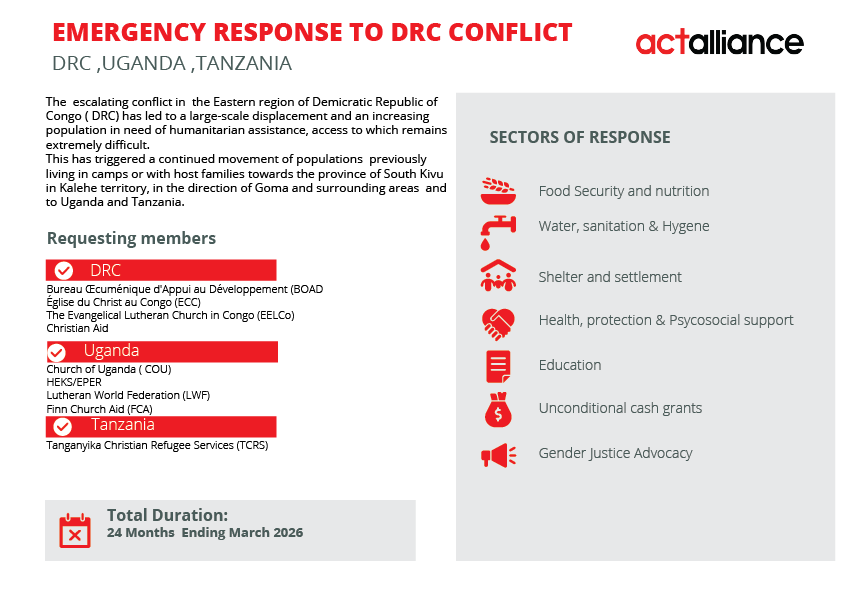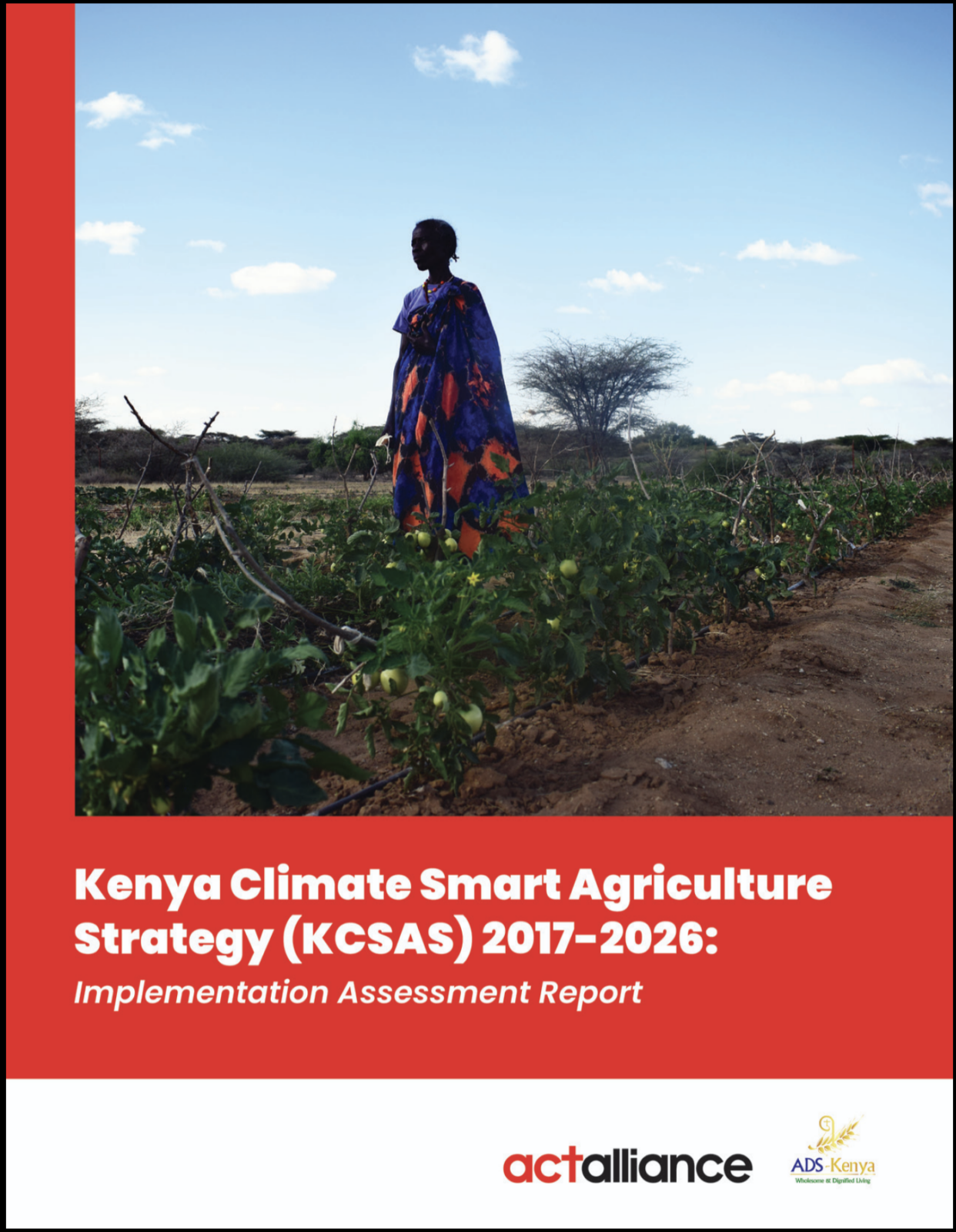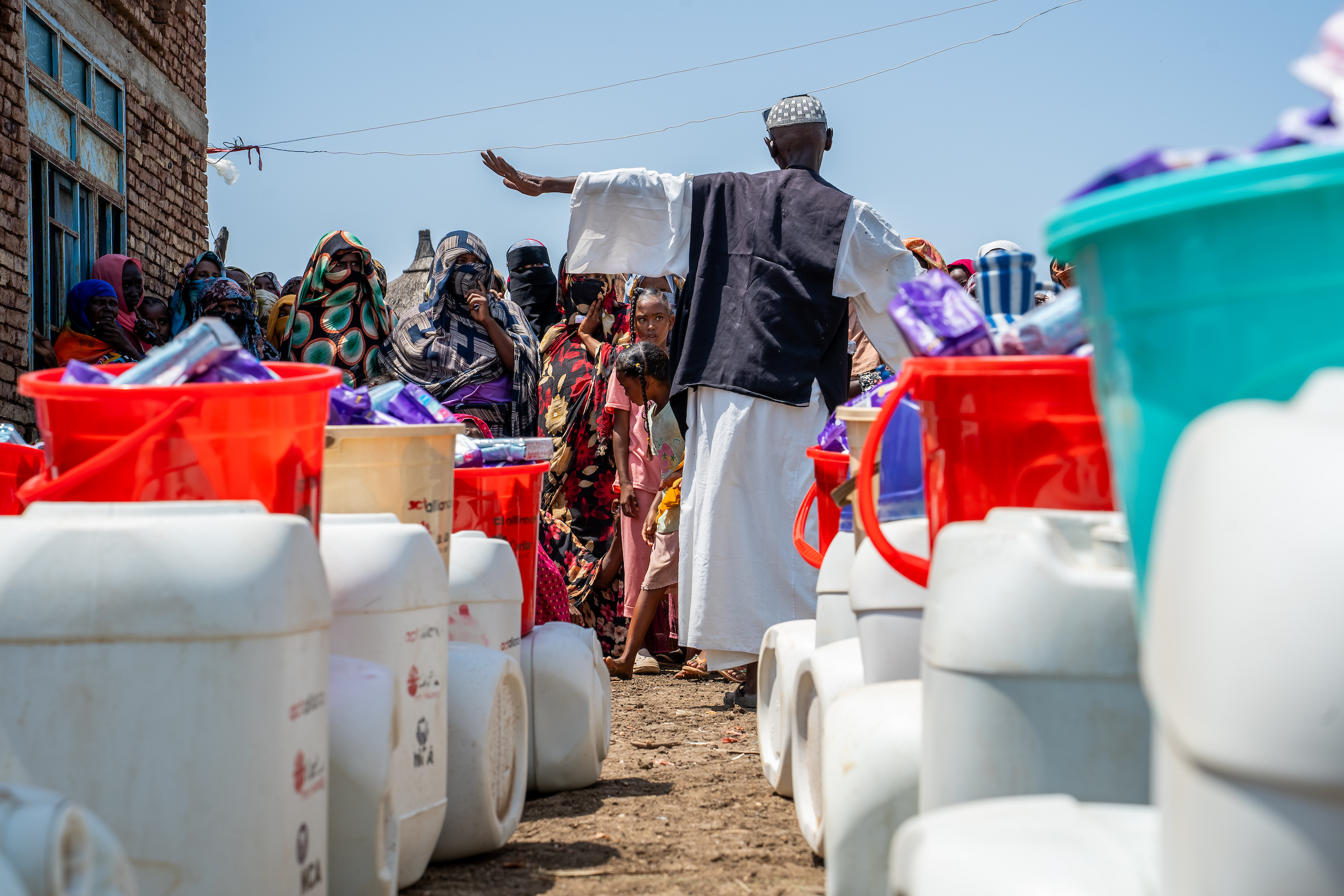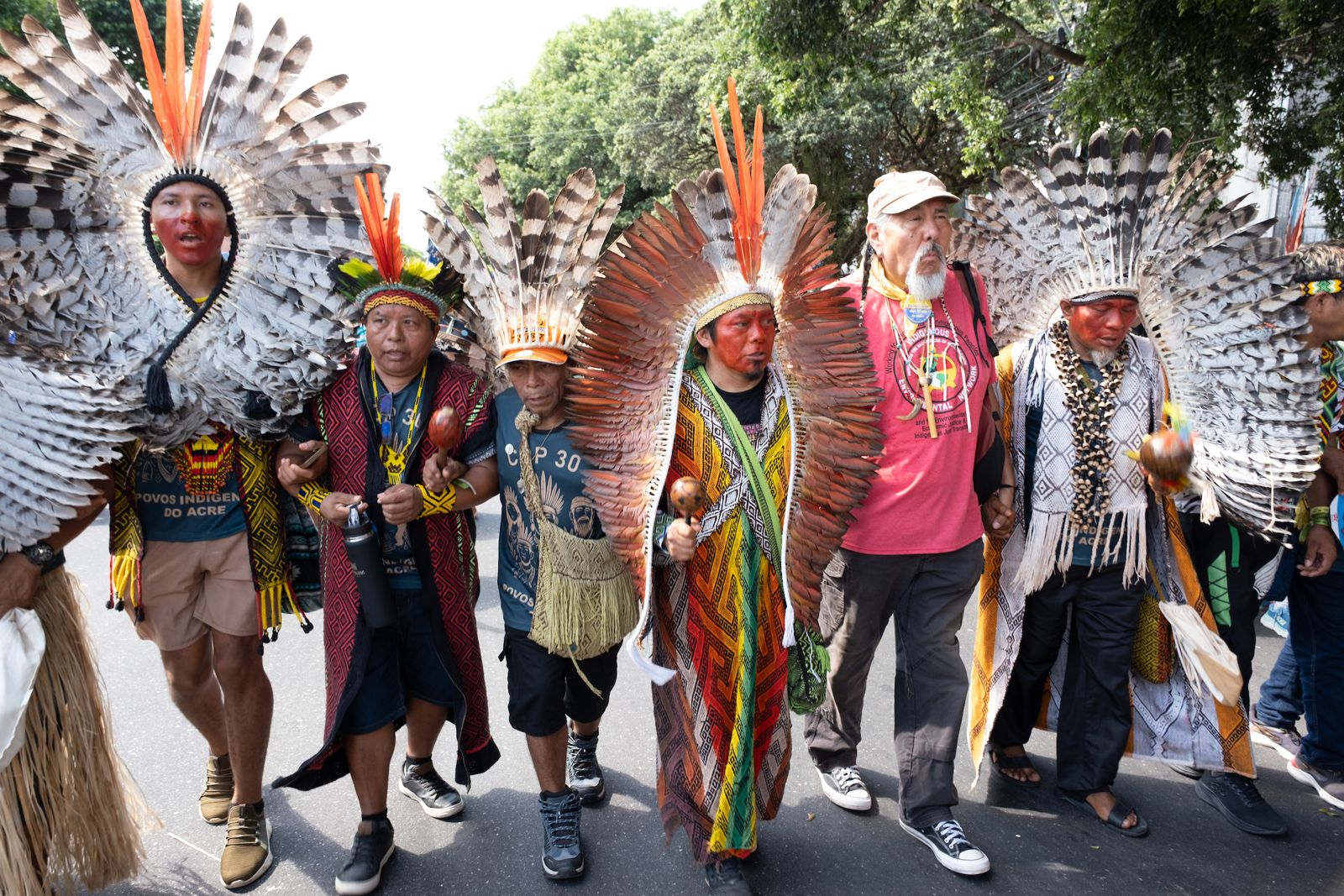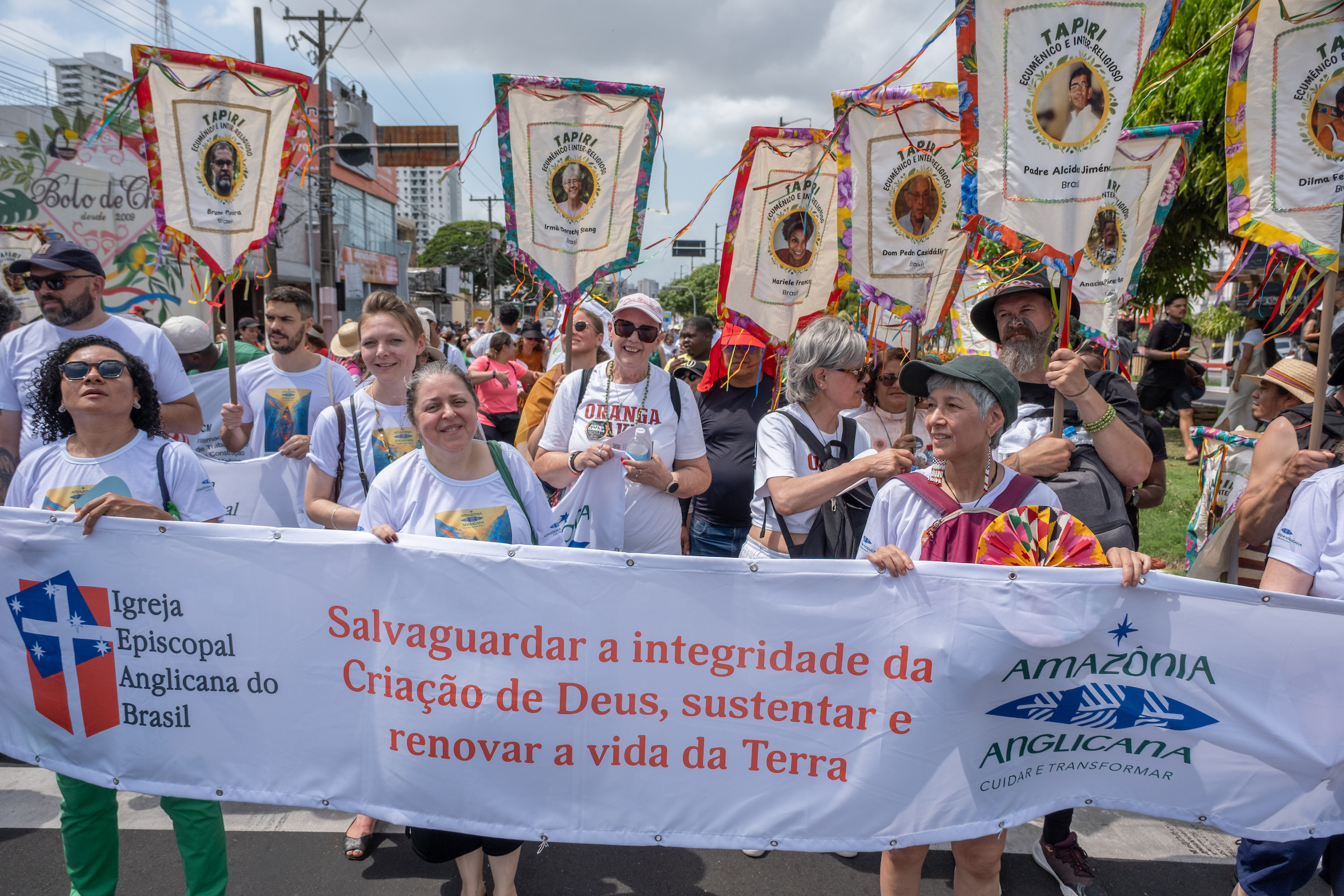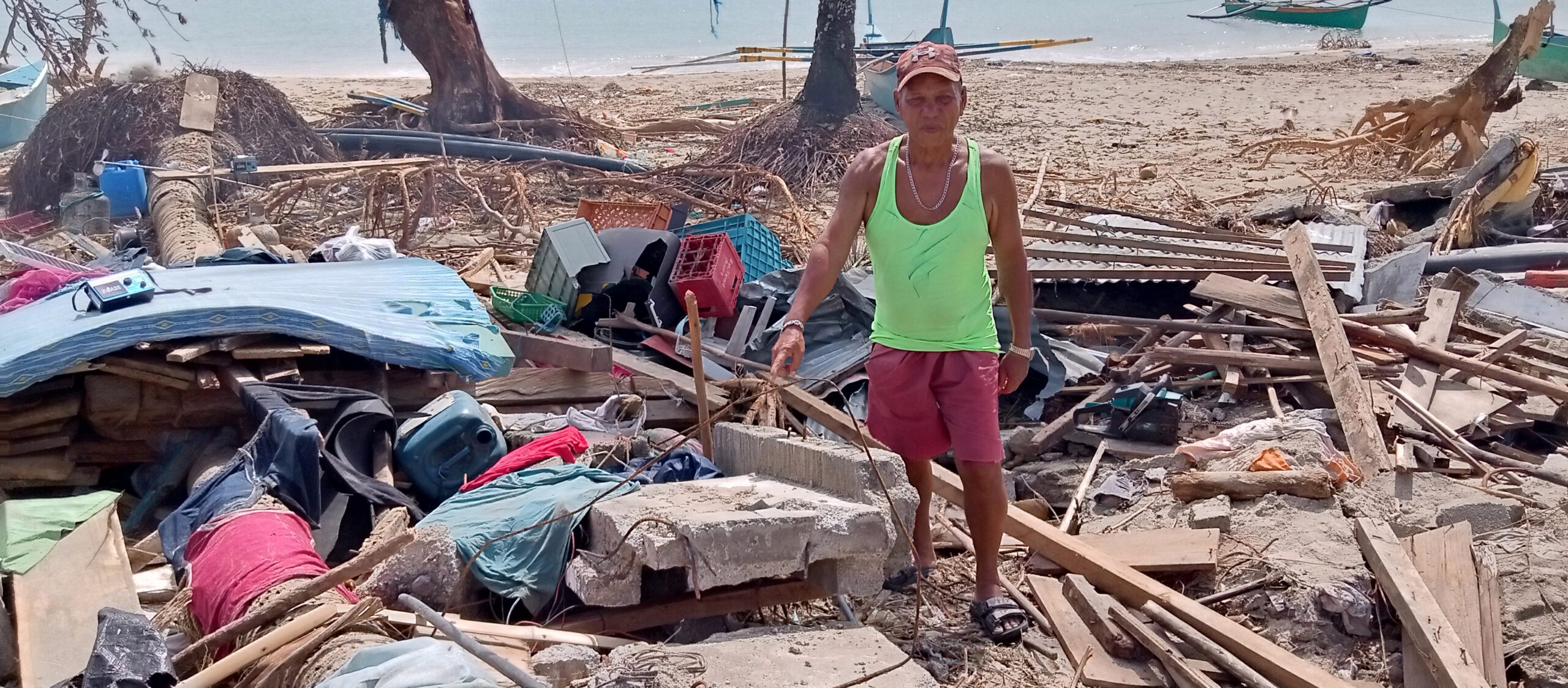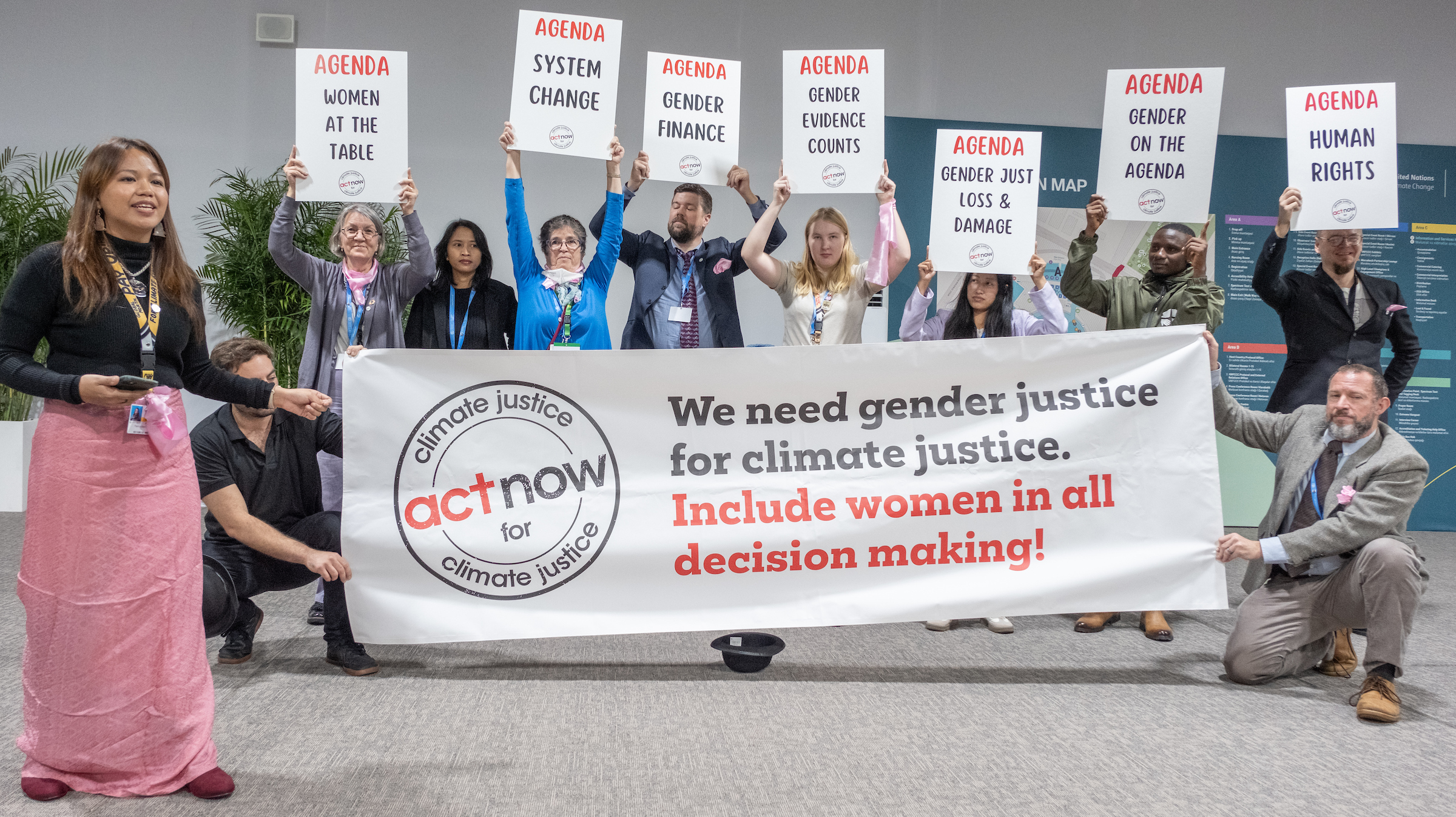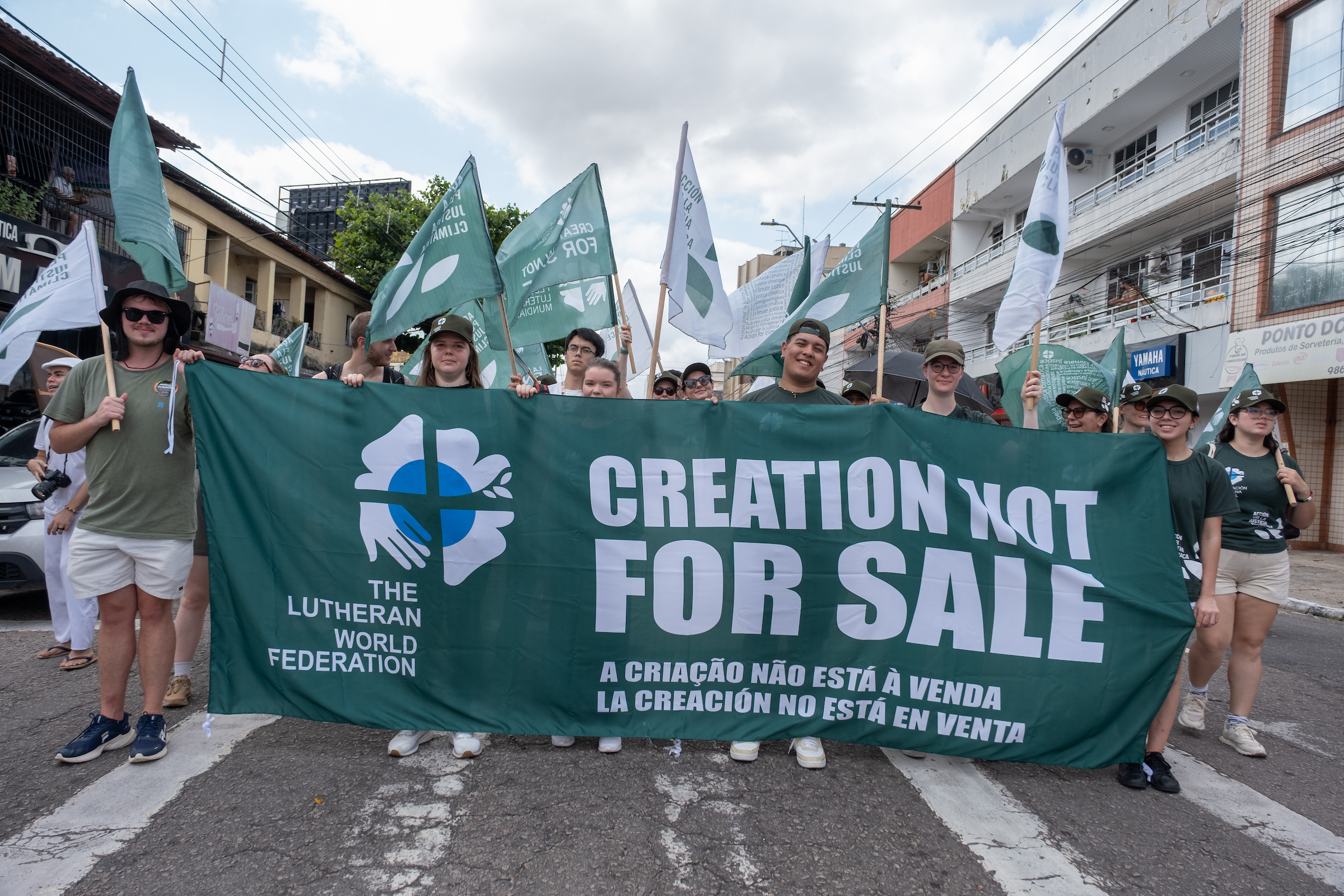In the eastern region of the Democratic Republic of Congo (DRC) an an increasingly complex conflict is unfolding creating widespread instability and an unprecedented humanitarian crisis in North and South Kivu.
Over the last 2 years, the conflict had already significant impacts in communities especially through food insecurity, challenges in water and sanitation, and widespread violence. After the recent escalations, , the number of people in need of assistance has increased , while humanitarian access has been restricted by the presence of armed groups.
According to UNHCR, the number of people displaced has surged to more than 400,000 this year alone and with continued fighting, the number is expected to increase. The South Kivu and North Kivu provinces host over 4.6 million internally displaced people and there is growing concern over the news of indiscriminate bombing of IDP sites.
People are fleeing the conflict, finding refuge in neighboring Uganda. The UNHCR Refugee Arrival Monitoring Dashboard reports that Uganda has been receiving a daily average of 270 refugees from DRC since January 1st 2025. The two main transit centers of Nyakabande and Matanda are overwhelmed and operating over capacity with the Nyakabande transit centre at 184% occupancy and the Matanda Transit Centre at 224% of capacity.
The majority of the new arrivals are being sent to the Nakivale Refugee Settlement where ACT Uganda forum members are operating, with increased occupancy of 166% of the maximum capacity. Fleeing the violence is not easy. The Goma- Rutshuru – Bunagana road remains under rebel control preventing people from seeking refuge in Uganda. There is, however, an anticipation of a significant increase in the influx of refugees crossing into Uganda as soon as safe passage becomes possible.
ACT’S Response
Through ACT Appeal CEA241, ACT members in Democratic Republic of Congo; Bureau Œcuménique d’Appui au Développement (BOAD), Église du Christ au Congo (ECC), The Evangelical Lutheran Church in Congo (EELCo), as well as Christian Aid, are responding to Internally Displaced persons (IDPs); the Lutheran World Federation (LWF), Fin Church Aid (FCA), HEKS-EPER, and Church of Uganda are providing humanitarian response in Uganda, and Tanganyika Christian Refugee Services (TCRS) is providing emergency response in Tanzania. Humanitarian services provided by the implementing members in the appeal include cash transfers, shelters and basic non-food items, water and sanitation services, livelihood support, food and nutrition support, GBV prevention and response, education support, mental health and psychosocial support and peace building.
The DRC Conflict is putting communities at risk. As the violence is increasing more needs to be done to support those affected. As cuts have been made worldwide to humanitarian financing there is a growing risk of leaving these communities behind. ACT Alliance calls for more funding for humanitarian response to assist those impacted by the conflict in DRC, and also for humanitarian access to the communities affected.
“We need to act for humanity, justice and peace. The crisis we are facing at the moment is rapidly escalating and affecting every aspect of people’s lives, making thousands of people homeless. Access to essential services is dangerously limited. While we hope for peace, in this challenging times we seek to support communities as best as we can” says Obed Buhendwa ,Senior program officer at Christian Aid-DRC.
